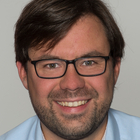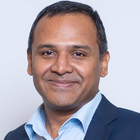The Current Column
World Health Day 2025
Securing Germany’s Leadership in Global Health
Strupat, Christoph / Srinivasa SrigiriThe Current Column (2025)
Bonn: German Institute of Development and Sustainability (IDOS), The Current Column of 7 April 2025
Bonn, 07 April 2025. Investing in health is one of the most impactful choices governments and development partners can make. Those who cut funding to global health effectively score an own goal, creating risks worldwide—including at home—since viruses recognise no borders in our interconnected world. Evidence shows that in low-income countries, every dollar invested in health systems can yield a nine-fold return, while in lower-middle-income nations, the benefits can be twenty times higher. Furthermore, robust evidence confirms that development policies in global health are particularly effective, while outcomes in other development policy areas tend to be more modest.
However, global health is currently at a crossroads: the United States’ withdrawal from WHO and the United Kingdom’s plan to slash aid to 0.3% of gross national income have halted key programmes against HIV/AIDS, tuberculosis, and malaria—jeopardising more than a decade of gains. Recent estimates warn of 15 million additional malaria cases and 107,000 deaths in 2025, while several countries face imminent shortages of HIV medications and TB drugs. Meanwhile, the abrupt termination of the Demographic and Health Surveys (DHS) removes a critical data source on maternal and child health, nutrition, and infectious diseases across 90 low- and middle-income nations. DHS surveys were the primary data source for decision makers. Health ministries rely on DHS data to target their health and vaccination programmes. DHS data are also used to calculate 33 of the indicators supporting the Sustainable Development Goals. It further underpinned global health research and served as an essential global public good.
Germany has long been a leading force in promoting global health. The adoption of the Global Health Strategy by the Federal Ministry of Health (BMG) in 2020 and the BMZ’s recognition of global health as one of their core themes demonstrate Germany’s commitment to strengthening health systems worldwide. However, suggestions to reduce funding or limit support solely to multilateral organisations—at the expense of bilateral engagement—would be counterproductive. Instead, Germany must uphold its leadership in global health and take decisive action to help mitigate these emerging critical gaps as shown in a recent IDOS policy brief. We further propose three priority actions:
- Strengthen key multilateral mechanisms at the 2025 replenishment conferences and preserve bilateral engagement. At their 2025 replenishment conferences, Germany should ensure robust—or ideally increased—funding for Gavi, the Vaccine Alliance and the Global Fund to Fight AIDS, Tuberculosis, and Malaria. This commitment is particularly crucial given the planned U.S. withdrawal of support for Gavi, an organisation that has prevented the deaths of 19 million children since its inception. To strengthen their health systems and improve health outcomes, low- and lower-middle income countries also require bilateral support that helps them make effective use of multilateral resources. Sustaining progress toward the health SDGs therefore depends on Germany maintaining at least stable bilateral health funding in real terms.
- Expand the international leadership for global health. Stronger collaboration between ministries (BMG, BMZ, AA and BMBF) is required to further strengthen Germany’s leadership in global health. In line with this approach, we recommend that Germany invests more in strengthening domestic cross-sectorial coordination between ministries and other stakeholders including state and non-state actors. Furthermore, the US government’s withdrawal from WHO (the US contributed ~16% of the WHO’s total revenue in the 2022-2023 biennium), warrants resolute action. It will be more critical than ever that Germany, as one of WHO’s largest supporters, extends its funding to reduce this substantial financial deficit. There is also need for continued investment in Pandemic Prevention, Preparedness and Response (PPR) and the fight against antimicrobial resistance (AMR) through the One Health approach. As infectious diseases and AMR transcend borders, their root causes and impacts—especially in the Global South—demand globally coordinated responses.
- Preserve the Demographic and Health Surveys (DHS). The termination of the DHS program immediately disrupted data collection, analysis, and reporting in 25 countries. Surveys in 18 of these countries were interrupted mid-round, while seven were near completion. We recommend that Germany take decisive action to rescue nearly completed DHS surveys by closing funding gaps. This would ensure that a critical data source for national decision makers is preserved. Moreover, Germany should champion the creation of a free, open platform for hosting current and future DHS data, and lead efforts to convene academics, international statistical bodies, and policymakers to secure the DHS for global health.
On World Health Day 2025, we are reminded that health is a universal public good and a catalyst for sustainable development, not only in low- and middle-income countries but also in Germany. Yet, disruptive funding cuts now threaten decades of progress. Germany must strengthen its leadership by enhancing both multilateral and bilateral funding, expanding cross-sectoral collaboration, and safeguarding essential health data to ensure that global health remains at the heart of a resilient and equitable future. After all, turning off the tap can happen in an instant, but restoring what has been undone can take decades—especially in global health.



